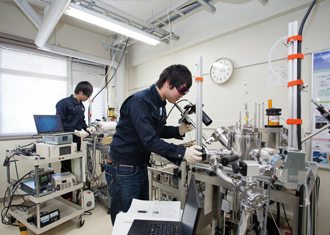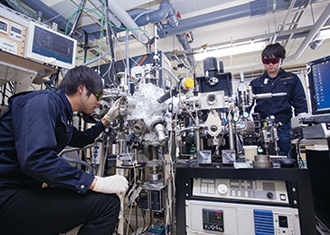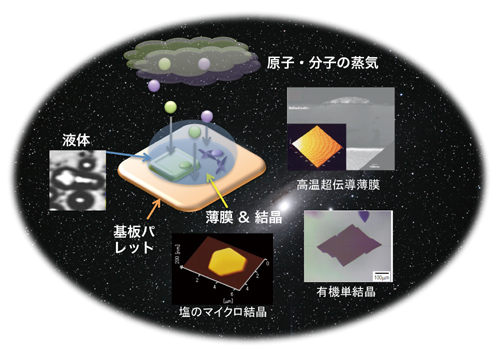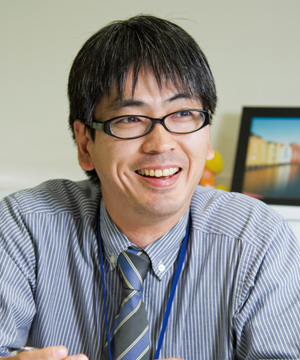Molecular Materials Design
Controlling the size and shape of liquids at the nanolevel in rarely encountered vacuum conditions


My research interest is the nanotechnology of liquids based on vacuum engineering, made possible by the new superclean, test tubeless, flaskless chemical reactions and materials processes that take place in vacuum environments such as in space or in orbit around the earth, in which nanosized bodies of liquid become stable.
Solid state nanotechnology now makes possible the control of the stacking period (artificial lattices) and device structure of crystals. It is a foundation technology that supports the modern electronics industry, from computers to the light-emitting diodes in traffic lights. This research that attempts to extend solid state technology based on vacuum technology to liquids is a world first, exploring unknown territory, and the possibilities in controlling the size and shape of liquids in a vacuum at the nanolevel are huge.
In recent years, rapid progress has been made in the developing of a variety of electrochemical devices in order to achieve effective energy use in the aim of realizing a low carbon emissions society. Such devices include dye-sensitized solar cells, lithium batteries, and fuel cells. As a result, the popular conception of the “device” that it had been assumed to be in a solid state, has now expanded to such liquid devices. In the future of our liquid state nanotechnology based on vacuum engineering, the liquid devices will undergo the same kind of miniaturization and integration as the solid state devices, making it a promising, revolutionary high-precision manufacturing technology that will uniquely contribute to the rejuvenation of Japanese industry.
Our research uses the vacuum as the prime experimental platform. We synthesize materials in a vacuum and then investigate their structure and properties. In this way we completely eliminate the environmental effects of the elements around us such as air and water that we are barely conscious of in everyday life. This facilitates fascinating encounters with a variety of essential phenomena in way that has been impossible so far, allowing us to observe individual atoms and molecules. In addition, we are able to align the atoms and molecules in crystals as we like.
So rather than just making do with a mental understanding of the atomic theory Dalton proposed about 200 years ago, why not join us as a pioneer in this infinitely stimulating and treasure-laden field of vacuum chemical technology? Take up this research challenge with us, and experience the vacuum for yourself!

Main Research Themes
- Growth of organic and inorganic thin films/crystals by the ionic liquid vacuum deposition
- Flux-mediated epitaxy for perfect single crystal thin films
- Exploring new nano phase separation in thin films and exploiting their properties and functionality
- In situ vacuum electrochemistry of surfaces and interfaces of solids
- Surface chemistry using a scanning tunneling microscope

Department of Applied Chemistry, School of Engineering
Doctor of Science
Yuji Matsumoto
Graduated from Takada Gakuen, Mie Prefecture, in 1989. He completed a doctors course in chemistry at The University of Tokyo in 1998, was research associate, then lecturer, then associate professor at Materials & Structures Laboratory, Tokyo Institute of Technology, before becoming professor of applied chemistry at Tohoku University school of Engineering in 2013. He was set on the path to science while at middle school upon a meeting with the eminent scientist, Torahiko Terada, who told him that "Those who are afraid of failure will never become scientists. Science is as a result of many try and errors named as "dead bodies" with which the predecessors were struggling, sometimes looked foolish enough to do so; it is like a flower garden that blossoms beside a river of blood." Professor Matsumoto's laboratory slogan is "All's grist that comes to his mill." He says that experiments are the sole means of dialog with nature, so scientists should be constantly attentive and precisely attuned to what nature is telling them.

